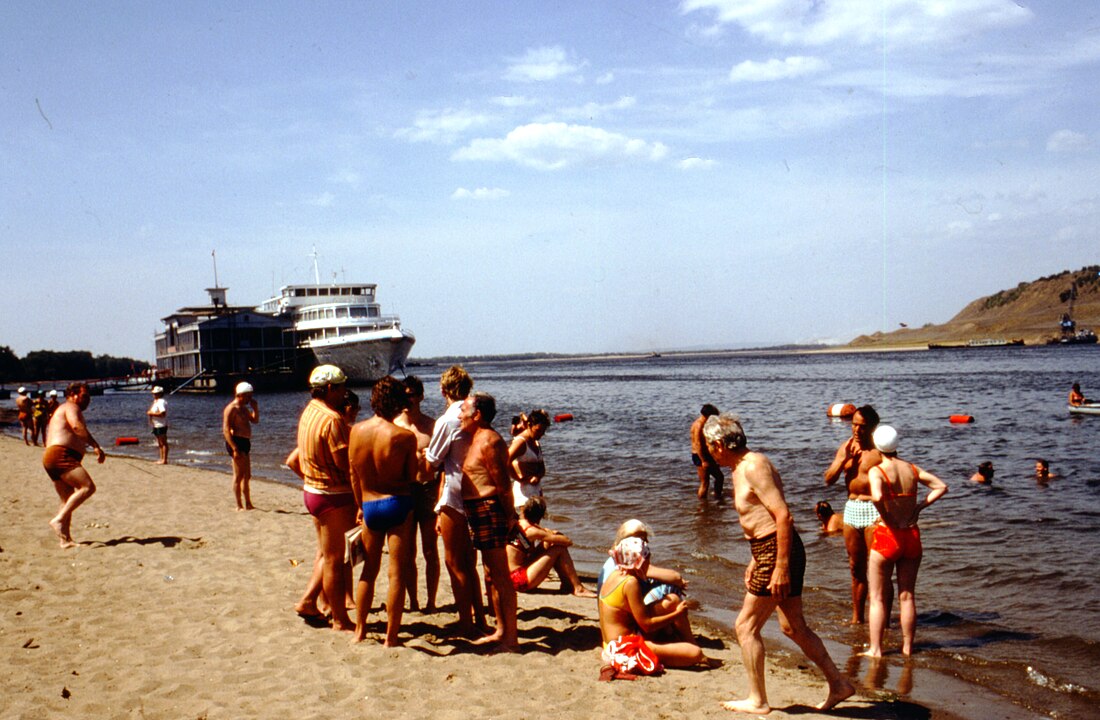If you’re a worker, I hope you’ve had a chance to take some time off this summer.
And if you haven’t, I hope you have a break coming soon.
Not everybody does, of course, and in some cases, workers did get time off but how they spent that time was up to somebody else.
That was the case in the Soviet Union, where the government put a lot of work into how people took their vacations.
Tim Brinkhof took a close look at Soviet vacations for JSTOR.
The rules about vacations started with the Soviet Labor Code enacted in 1922.
Adult workers were guaranteed at least two weeks of paid time off each year.
But it wasn’t quite the same as vacations in this country, where time off means you can more or less do what you want.
For one thing, the powers that be considered leisure suspicious.
They thought their movement was going to change the world, and how do you change the world if you’re sitting on a beach, or, worse, going shopping like a capitalist?
And in the USSR, people were considered part of a collective: the individual was supposed to align everything they did and said with the country’s goals.
So there were a lot of group vacations, in which local trade unions or party organizations would choose 25-40 people and send them somewhere together.
Kids would go to summer camps, while adults might go to something like a wellness retreat – which participants described as restful but not exactly fun – or they might tour a part of the vast country, which was intended to gin up patriotism in Soviet workers.
The problem was, none of this was what most of the country’s people wanted.
They may have enjoyed visiting some of their country’s natural wonders or historic sites, and they might have felt refreshed after a week at a sanitarium, but what they really wanted was the chance to go on the vacation they chose.
And they wanted to travel with their families, not with comrades chosen by the authorities.
By the 1960s, the Communist apparatus started to let people do just that.
This is when you started to see the construction of more private dachas, for example.
It was also when people started to have more Western-style vacations, acting more like consumers.
Some even got the chance to visit other countries, which was one way that people who opposed the Soviet-style policies started to make contacts and spread their beliefs across the Communist bloc.
As the JSTOR article notes, the USSR started offering workers vacation time as a way to help meet some of the country’s goals, though, in the end, it definitely didn’t work out that way.
Today is International Kissing Day.
Back in 1656, Captain Thomas Kemble returned to Massachusetts after three years at sea.
He got home and kissed his wife in front of their house.
The Puritan authorities declared that kiss “lewd and unseemly behavior,” and Kemble had to spend two hours in the stocks as punishment.
Workers of the World, Take PTO! (JSTOR)
THOMAS KEMBLE, THE KISSING PURITAN (New England Historical Society)
Backing us on Patreon is even easier than going on vacation
Photo by Thomas Taylor Hammond (1920-1993) – University of Virginia Center for Russian, East European, and Eurasian Studies (www.virginia.edu/creees), CC BY-SA 4.0, via Wikicommons

